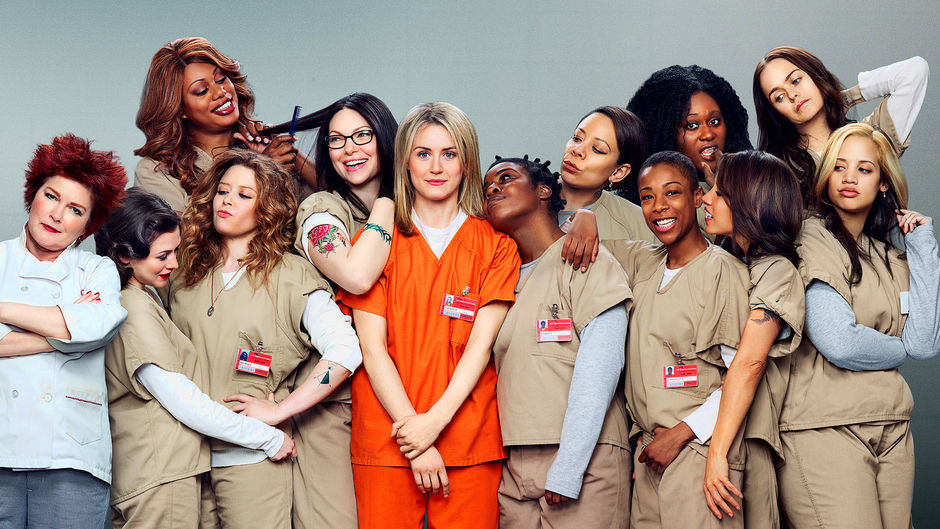Joy Press understands the necessity of good timing and the irony of events, dear girl, events. Her new book, Stealing the Show, is an incisive look at the talented women creating many of today’s favourite television shows — and explores the issues of access, class, gender and race they navigated to get to the top. “When I started this book, creative women were ascendant and a female President was about to be elected — but I finished it with Donald Trump in office and #MeToo all over the media.”
Undaunted, Stealing the Show landmarks the history of woman-made hits in television and serves as a primer for any woman with aspirations to join the next generation of showrunners. The author came to write her book after two decades of experience as a TV, music and literary critic, culminating in the native New Yorker moving to Los Angeles to edit the LA Times’ influential TV section — a form of clout which doubtlessly helped in arranging contributions from heavyweight talents such as Roseanne Barr, Tina Fey, Shonda Rhimes and Lena Dunham.
“I’ve been professionally watching TV for a long time and it always frustrated me how few shows there were in my lifetime that reflected anything close to my life,” Joy explains, noting that her own teenaged viewing habits tended towards scouring the schedules for comedies or drama with relatable female protagonists and clinging to the few she found. “I remember how extraordinary shows like Weeds and The L Word were because they stood in for an entire world of female experience. All of a sudden there was a deluge of shows coming through — like Girls, New Girl, Orange Is the New Black, The Mindy Project and Transparent — that it felt like we might be at a tipping point. We still are, but recent political and social events give it urgency.”
“I remember how extraordinary shows like Weeds and The L Word were because they stood in for an entire world of female experience.”
For decades, American and British broadcasters alike determined anything outside a particular white, middle-class female milieu was ‘unrelatable’. And despite today’s visible shift, women in both the UK and US creative communities are still sounding off loudly about the ongoing disparity in opportunities and pay scales — disparity that exists even when you’ve created a world-beating hit.
While in Stealing the Show, this struggle continues –- the arc of progress is bending toward true inclusivity. Stars like Roseanne Barr, whose well-publicised clashes with male execs overshadowed her accomplishments and the opportunities granted to younger talent in her writers’ room, unguardedly tell their stories to Joy reflecting the difficulties of being a pioneer, while dramatists such as Gilmore Girls’ Amy Sherman-Palladino and Gray’s Anatomy/Scandal creator Shonda Rhimes give the low-down on how much intent and craft and creative control go into the making of a hit show.
One refreshing thing about these newer female showrunners is the variety of routes they’ve taken to reach broadcasters — some, such as Girls’ Jenni Konner, Orange Is The New Black’s Jenji Kohan, and Gilmore Girls’ Amy Sherman-Palladino are related to other producers, performers or TV writers and started out writing scripts for established shows. Shonda Rhimes pivoted from screenwriting to create Gray’s Anatomy, while Lena Dunham made independent films.
“Network television has always been a closed environment — part of it is about finding a way in. Theatre, independent film, YouTube — these are all ways to circumvent that system now.”
“Network television has always been a closed environment — part of it is about finding a way in. Theatre, independent film, YouTube — these are all ways to circumvent that system now. Before that, a lot of the older women I talked to started out as secretaries — when that job role became ‘assistant’, suddenly men were happy to take those jobs,” Joy laughs. “One woman told me she was the typist in the room, and eventually knew that show so well, she was able to start writing episodes. Eventually, and very slowly, they’d make their way up the TV ladder — but most of the women in my book managed to find other ways around it.”
Although stand-up comedy remains a regular pathway to series TV for men, Roseanne Barr, Tina Fey and Amy Schumer still appear exceptional in their field despite the runaway nature of their successes. As Mindy Kaling and New Girl’s Liz Meriwether made the jump from old-school improv and theatre work, the 21st Century platform of YouTube provided a launching pad to Ilana Glazer and Abbi Jacobson’s Broad City. One of the most fascinating accounts here is that of Jill Soloway, a veteran scriptwriter inspired by her own father’s gender transition to create Transparent, who ultimately found a new, non-binary identity as well. With a multiplicity of compelling stories available, the past five years have seen a boom in online outlets and streaming services hungry for new demographic markets and talent. Available ladders seem finally to outnumber snakes.
There is an elegance in the structure of Stealing the Show and its reflection of the diversification of talent with the passing of time: the stories of working-class white women are the first to emerge, then single parents, bisexual and lesbian LGBT, followed by women of colour and non-binary approaches to gender. Far from reflecting the boys’ club cliché of only one female success story allowed at any given time, Joy’s subjects instead form a gathering force for change, marching together. And if there’s evidence of change in the air, rest assured that it will ultimately appear on the air.
Stealing the Show: How Women Are Revolutionizing Television is out now.
